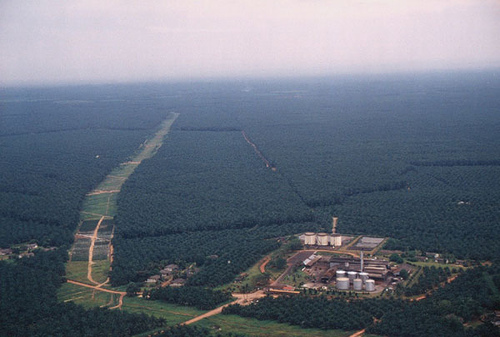Biofuels survive the UN Food Summit PLUS the facts about palm oil

By Richard Crowhurst, Editor, www.enagri.info
Last week’s UN summit on the “global food crisis’” failed to come up with any meaningful action points. But with every country of the world putting their two pennyworth on what is a very complicated situation, it was probably inevitable that little would be achieved.
Before, during and since last week’s meeting, biofuels have carried the blame for food inflation, and have undoubtedly had some effect on commodity prices. After all, the reason that so many American and European farmers became excited about them in the first place was the possibility that a new buyer in the market could help rise prices to a sustainable level above the cost of production.
But the amount that biofuels contribute to recent price rises is hotly contested.
Biofuel producers suffer as much from high feedstock prices as food processors. Some would say that, as they are also producing a commodity product with limited power to set the final price, they suffer more. The issues are further clouded by policy and subsidy issues.
Reduced yields and stocks (again, due to a number of different factors around the world) have combined with a perfect storm of financial factors (including increased market speculation), short-term political intervention and, most importantly, rising oil prices, have all had large impacts on the price of food. Since last summer, oil prices have almost doubled, resulting in a situation where UK growers will need about £120/t for wheat to break even. With wheat at £135/t, is food really too expensive?
European academic and commentator Olivier De Schutter, who has consistently argued on the human right to food, commented at the end of the summit that: “We should move towards a code of conduct that should, minimally, have the requirement that soil which is suitable to the cultivation of food should not be diverted to (grow) fuel beyond the current figures.” But this overlooks rising oil prices and has the potential to stifle agricultural development in the parts of the world which need it most.
The woolly draft declaration issued from Rome may have pleased biofuel industry bodies, who welcomed “The UN Food and Agriculture Organisation proposal to undertake further study of biofuels in agriculture”, but has done nothing to appease critics of non-food crops. This may be a phoney war, but expect many more battles in the future.
One of the most controversial biofuels crops that will have been discussed at the UN food summit ia also one of the world’s most prolific – palm oil. Its cultivation is blamed for rainforest destruction and loss of biodiversity, but it is also a basic source of income for many of the poorest people in south-east Asia and central and West Africa.
It is also one of the most important feedstock crops, not just for global biodiesel production, but also for a wide range of uses including food oil, margerine, engine lubricants and soaps.
It’s supporters claim that biodiesel produced from palm oil is a renewable energy source that reduces carbon emmissions from burning fossil fuels, while its critics condemn it as a false economy.
So what is it?
Palm oil is derived from the fruit of the oil palm (Elaeis guineensis). A quarter of a hectare of oil palm plantation will produce a tonne of palm oil.
Who grows it?
Malaysia (pictured below) is the largest producer, supplying some 15m tonnes of palm oil in 2004-05, closely followed by Indonesia at 14m m tonnes. By comparison the other countries are tiny, with Nigeria, the third largest grower, producing just 800,000 tonnes.

Pic: www.flickr.com/sampsadaily
Why is it controversial?
Campaign groups like Greenpeace and Friends of the Earth claim that the large scale production of palm oil in Malaysia and Indonesia has led to widespread deforestation, particularly of native wetlands. Not only does this lead to a loss of biodiversity, but it also releases carbon dioxide into the atmosphere.
Are biofuels responsible?
Most palm oil is used in food and cosmetics, although in the past large quantities have been used for co-firing in European power stations. While palm oil is being touted as a potential biodiesel feedstock in the tropics, technical issues limit its use in cooler climates such as Europe and North America.
Since the start of this year, exporters claim to have seen a reduction of palm oil sales to Europe largely due to perception issues and, in the UK, the introduction of the Renewable Transport Fuel Obligation, which will encourage biofuel producers to disclose the origins of their fuel.
What’s the answer?
International initiatives such as the Roundtable on Sustainable Palm Oil and the Malaysian Palm Oil Wildlife Conservation Fund are designed to overcome some of the sustainability issues, but green groups say they do not go far enough. On the other hand, Malaysia argues the area of palm oil production worldwide is much lower than for other oilseeds such as soyabeans and oilseed rape.
More information on palm oil and the oil palm is available at www.enagri.info

